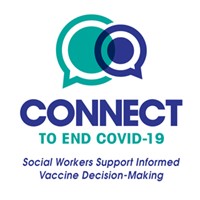
The Center for Disease Control and Prevention (CDC) recommends the following for preventing Long COVID:
- Staying up to date on COVID-19 vaccinations including receiving the recommended boosters. An updated booster was approved in September 2022 and is widely available and recommended for vaccinated people who are age 6 months and older. Avoid close contact with people confirmed or suspected of having COVID-19.
- Practice hand hygiene defined as washing hands with soap and water for 20 seconds.
Research documents that people who are vaccinated and who experience a breakthrough infection are less likely to experience Long COVID than people who have not been vaccinated.
School social workers have served as an essential workforce in responding to disasters, including public health crises. School workers play an active role in consulting on positive building routines with administrators, teachers, and school nurses. Social workers need to support opportunities for handwashing at schools, instruction in how to distance appropriately, and publication of vaccine opportunities in school communications. NASW asks social workers to use their distinctive professional expertise to work with others around COVID-19 vaccine decision making. The Connect to End COVID-19 section of the NASW website includes prevention pointers.
NASW. Prevention Section Infectious Diseases. Retrieved May 11, 2023 from https://www.socialworkers.org/Practice/Infectious-%20Diseases/COVID-19-Vaccine-Confidence
Center for Disease Control and Prevention. Long COVID or Post-COVID Conditions. Section Preventing Long Covid. (2022, December 16). (https://www.cdc.gov/coronavirus/2019-ncov/long-term-effects/index.html)